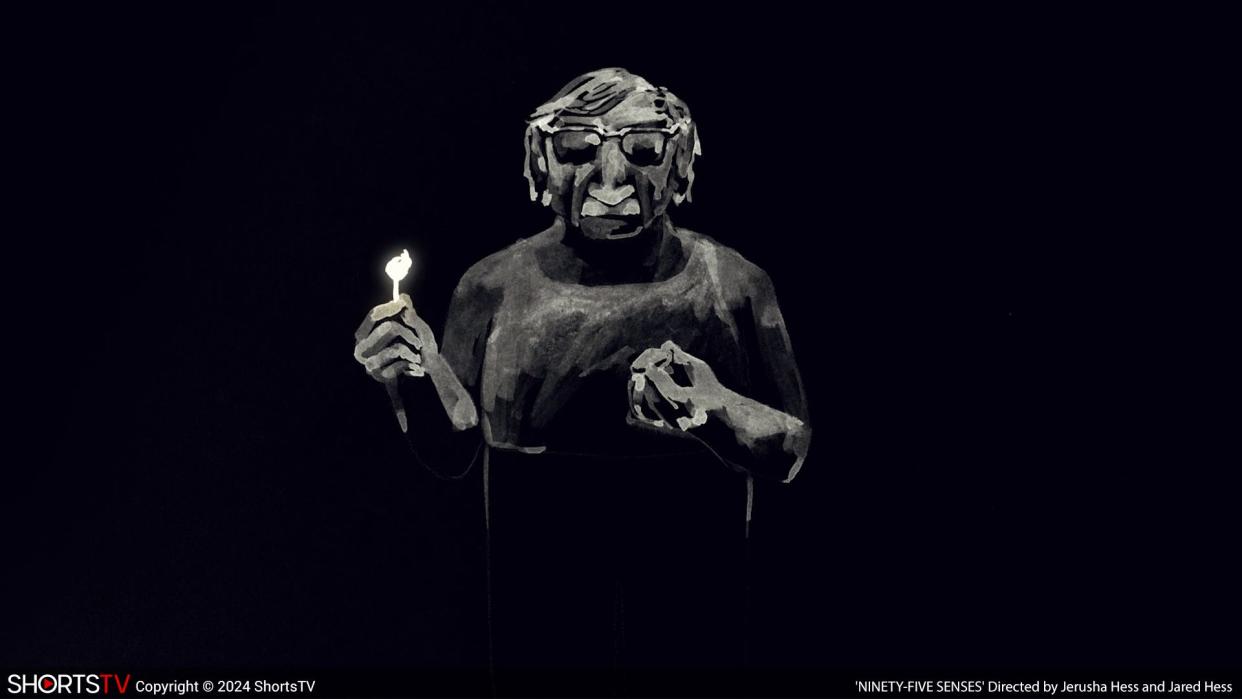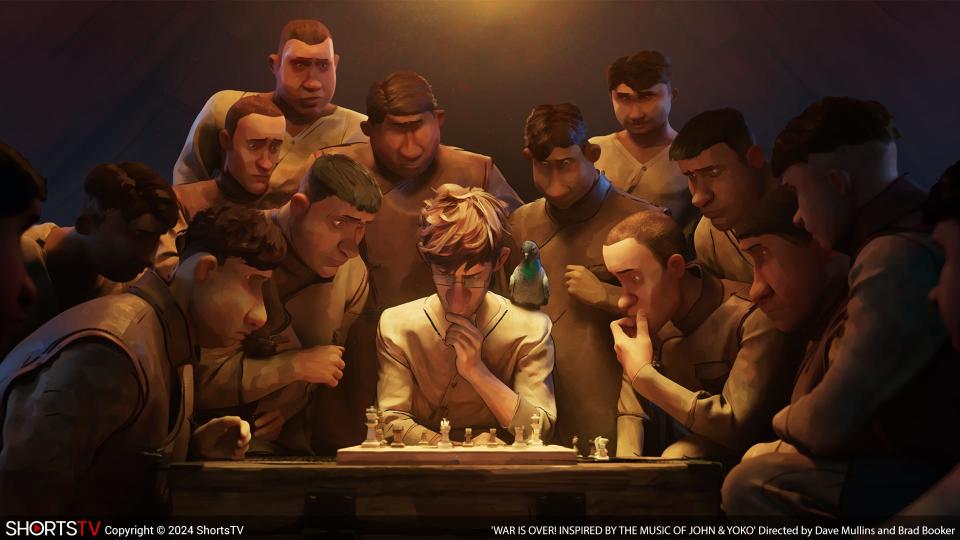Why Oscar-nominated shorts, coming to Ragtag Cinema, make up must-see programs

Every year, the films nominated for the Oscar categories of best shorts in animation, live action, and documentary are packaged and distributed to arthouse theaters. Our own Ragtag Cinema premieres the animated and live action shorts this Friday.
They opt out of documentary shorts from a belief the public will be all documentary-ed out before the True/False Film Fest. The more documentaries the better, I retort.
Anyway, watching these bundles of Academy-blessed cinematic tidbits separates passive Oscar fans from the die-hards. Not only does it move you closer to completism in seeing every film nominated, there’s almost an odyssey-like quality to the viewing experience. It’s as though the artists behind these films want to test what the audience can handle.
Is this animated short about female oppression in Iran depressing? Wait until you see this one about abortion! Often these films are grim marathons. A bit relieving they’re all under 40 minutes.
That’s also one of the good things about the short films compared to their longer compatriots: they can be more responsive to the world’s current state. Smaller budgets and shorter production times mean more risks and provocations as well as a quicker turnaround, adding to their urgency.
If one seeks an immediate bead on how artists see the world, these shorts are a good glimpse. They are often more diverse too. Since other countries value artistic expression as a public good, many shorts come from taxpayer funds (or lottery bettors, as is the case of Britain) around the globe. It’s a cheap way to see the intimate workings of other cultures.
Not all are alike in quality. This year’s bundle of live-action films are much better than the animated ones. Of the animated films, the one that has stayed with me is “Ninety-Five Senses,” where an inmate confined to death (voiced by Tim Blake Nelson) recounts his life based on sights, tastes, smells, etc.
An oddly sentimental piece from the unlikeliest of sources: it is written and directed by Jared and Jerusha Hess, the team behind such triteness such “Napoleon Dynamite” and “Nacho Libre.” A real surprise to see their names in the end credits of a complicated piece.
Tal Kantor’s “Letter to a Pig” is not only a thoughtful lesson on the Holocaust — a favorite topic of these shorts — but on the cyclical nature of hate. The visuals are striking and the message delivers.
Also of interest to music fans is “War is Over,” co-produced by Yoko Ono and featuring music from John Lennon. It also features the best animation of the batch, and the music is good, even if the story and its teachings are familiar. The others are only of nominal interest. Sorry, I’ve got a word count to worry about.

The animated shorts program not only includes the five films nominated, but also two “highly regarded” films that help pad the running time.
Again, the live action shorts are the real deal. The likeliest winner is Wes Anderson’s telling of the Roald Dahl-penned “The Wonderful Story of Henry Sugar.” This was part of a package of Dahl adaptations you can also find on Netflix. All of them are worth watching, even if “Henry Sugar” is the only nominee.
Put together, they are the best work the filmmaker has done since “Moonrise Kingdom.” It’s almost unfair to the other nominees with Anderson’s style and Netflix’s money, as well as a great cast that includes Benedict Cumberbatch, Ralph Fiennes and Dev Patel. Advantages any film would kill for.
Even if you don’t see the Oscar-nominated shorts, I urge you to watch all four Dahl shorts on Netflix if the means are available.

While “Henry Sugar” is the frontrunner, and the first time Anderson is in serious Oscar contention, I would not rule out “Red, White and Blue.” It is about reproductive rights in modern America. I dare not say much else because the film — in a great use of storytelling economy — delivers a dramatic pivot as compelling as anything you’ve seen all year. Given the urgency of the topic and the sheer narrative acumen, it could pull an upset.
The other selections are also quite good. “The After” is another Netflix offering with a big name (David Oyelowo) and posh production values. Although the film’s length and the intensity of what it depicts might be overwhelming.
“Knight of Fortune” is a dark and sometimes comic Nordic offering about a man coming to terms with the loss of his wife. It’s also available on demand if you’re interested. The last film is “Invincible,” a French film about a troubled youth. Failing to rise over its conventions, it’s the weak link of the five.
Overall, the nominated shorts are pretty good this year. If you want a leg up on your Oscar party predictions, you must check them out.
James Owen is the Tribune’s film columnist. In real life, he is a lawyer and executive director of energy policy group Renew Missouri. A graduate of Drury University and the University of Kansas, he created Filmsnobs.com, where he co-hosts a podcast. He enjoyed an extended stint as an on-air film critic for KY3, the NBC affiliate in Springfield, and now regularly guests on Columbia radio station KFRU.
This article originally appeared on Columbia Daily Tribune: Why Oscar-nominated shorts bring depth of field to Ragtag Cinema

